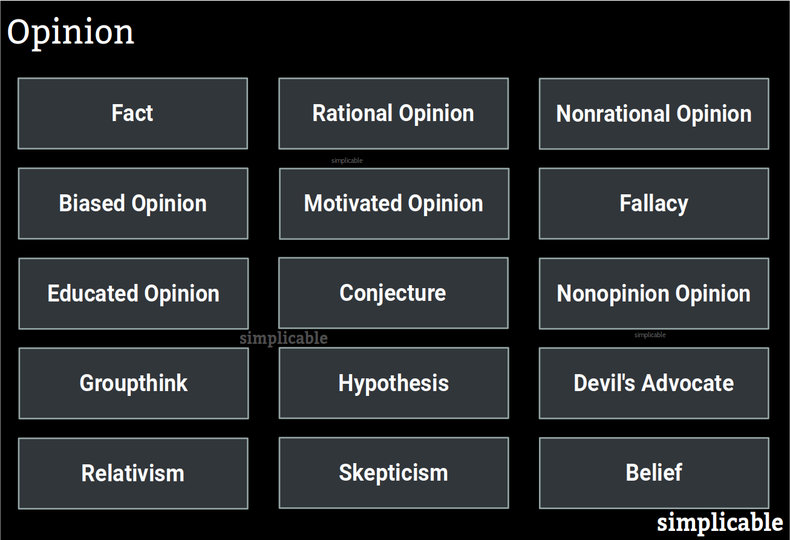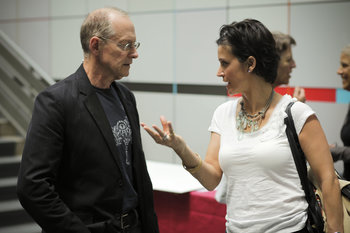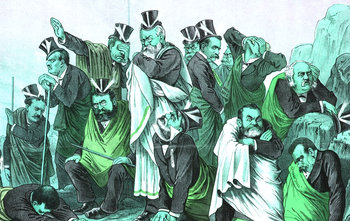

Fact
A fact is a judgement that is supported by evidence such that it is widely accepted as a truth. Facts must be open to reasonable challenges or they aren't really facts. For example, the scientific method allows for all accepted laws and theories to be challenged based on new evidence. Facts are often contrasted with opinions but you can adopt a fact as an opinion such that they aren't mutually exclusive.Rational Opinion
An objective opinion that is based on logical evaluation of evidence. In order to be fully rational, an opinion must be uncolored by ideology, motivation or bias.Nonrational Opinion
An opinion that is less than rational meaning it is formed with insufficient logic, evidence or objectivity. For example, a negative opinion you form of someone based on an emotional reaction to their face.Biased Opinion
A type of irrational opinion based on patterns of repeated failures of logic known as biases.Motivated Opinion
An opinion that has some motivation behind it such as conforming to an ideology or pleasing a sponsor.Fallacy
A fallacy is a statement that is demonstrably not true. In other words, a fallacy is flawed logic.Educated Opinion
An opinion from someone who has the education and/or experience required to fully understand a domain. An opinion can be rational without being educated and vice versa.Conjecture
A rational opinion that is formed in the context of uncertainty such that evidence is missing. It is very common for evidence to be lacking when an opinion is required. For example, an economist who must give an opinion on economic growth without knowing how a monetary authority will react to economic data.Nonopinion Opinion
Communication that is presented as an opinion that actually says nothing. For example, if by whiskey.Groupthink
Groupthink is a situation where individuals form opinions through social processes as opposed to logical processes such that they repeat things they've heard without really understanding them. In many cases, an individual is under intense political, social and economic pressure to echo the opinions of a group.Hypothesis
A reasonable prediction that you make before collecting all the evidence you need to form a rational opinion or propose a new theory for peer review.Devil's Advocate
Devil's advocate is the practice of temporarily holding an opinion that is probably false for the purposes of thought or debate.Relativism
Relativism is the assertion that it is a universal truth that universal truths don't exist. This is a foundation of postmodern academic thought that currently dominates the social sciences. Relativism means that individuals are free to define reality and nobody can say that they are wrong. This is a convenient assumption for defending academic theories and arguing your point.Skepticism
Skepticism is a high standard of proof for facts. Mild skepticism involves critical thinking to identify flaws in logic and statistics. It is also possible to take skepticism quite far to argue that all or most human knowledge is subjective and nonfactual. For example, the argument that we don't really know if everything that we sense and observe is a simulation.Belief
Belief is a category of opinion that extends from things such as intuition, trust, values, mysticism and faith that a society, culture, religion or individual may view as above the observational and logical capacity of humans. For example, Socrates relied on an inner voice that we might call intuition.| Overview: Opinion | ||
Type | ||
Definition | A judgement regarding truth made by an individual, group or institution at a point in time. | |
Related Concepts | ||






































